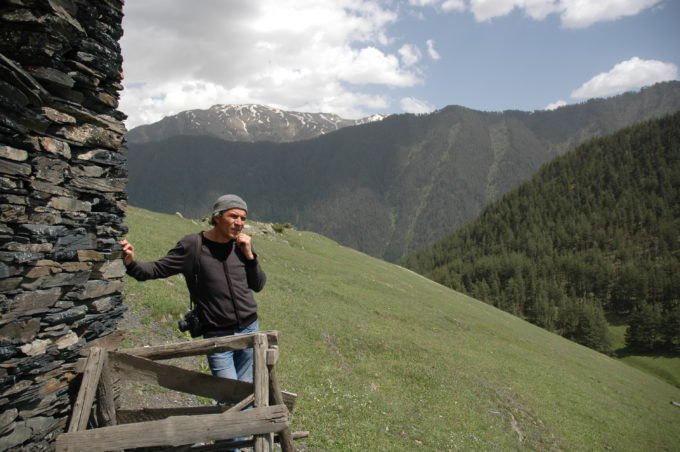
Beyond War with Yuri Kozyrev

Drinking coffee in Moscow with one of the great conflict photographers of our time.
For 25 years, photographer Yuri Kozyrev covered conflicts from Afghanistan to Chechnya, Iraq, Libya and beyond. His combination of frontline fearlessness and human compassion won him the highest awards in his industry. And then, he chose to stop covering war.
He talked in Moscow with host Nathan Thornburgh, who worked alongside Kozyrev throughout Russia and the Caucasus while they were both at TIME magazine. They talked about the late great Stanley Greene, about traveling with mujahedin, and about why it was hard to quit war for good.
Here is an edited and condensed version of the transcript from Nathan and Yuri’s conversation. You can listen to the full episode, for free, on Apple Podcasts, Stitcher, Spotify, or wherever you get your podcasts.
Nathan Thornburgh: I told you just before we started recording that you are like a father to me in this business. All of the things that I care to pass on to anybody who is interested about journalism, I feel like I’ve heard from you. There’s a lot of energy, maybe a kind of an aggression with a lot of young journalists who get into this business. They want to be big and bad and go and get the story. I always think of you: the gentlest guy I ever knew did the toughest stuff. So, I want to talk a little bit about, particularly this latest era of war, and the work that you did there, and why you choose not to do that anymore. So, your first war was Chechnya.
Yuri Kozyrev: Yeah, there was Chechnya. When the Soviet Union collapsed, there were a lot of conflicts. Small conflicts. Domestic.
Thornburgh: Yeah.
Kozyrev: And I tried to cover them.
Thornburgh: What were some of the small ones and who were you working for?
Kozyrev: I was freelancing. I was on my own. I wanted to witness all these changes. Chechnya was the toughest experience.
Thornburgh: What made it that way?
Kozyrev: Everything was unpredictable. Dangerous. My colleagues and I were on our own. You could be with the rebels, or you could try to be with the Russian army, but most of the time you’re actually by yourself between these two forces.
Thornburgh: How old were you?
Kozyrev: I was 26, 27. That’s the age I actually started to travel and tried to get to some tough places. I was incredibly naive. I was brave.
Thornburgh: He’s doing air quotes around the word “brave.”
Kozyrev: Yeah. It was a good thing that I met the right people like Stanley Greene. He’s one of the photographers who helped me to understand how to cover conflict. I remember the day my friend and I followed one Chechen boy who was helping us to get inside one of the famous districts of Grozny during the war. I saw some photographers leaving—it was Jim Nachtwey and Chris Morris and they were completely exhausted and they had all their gear, but I was just the boy with the camera. That’s it. No helmet.
Thornburgh: Yeah.
Kozyrev: It’s crazy to do it this way. I survived, which is great you know.
Thornburgh: It is. Yes.
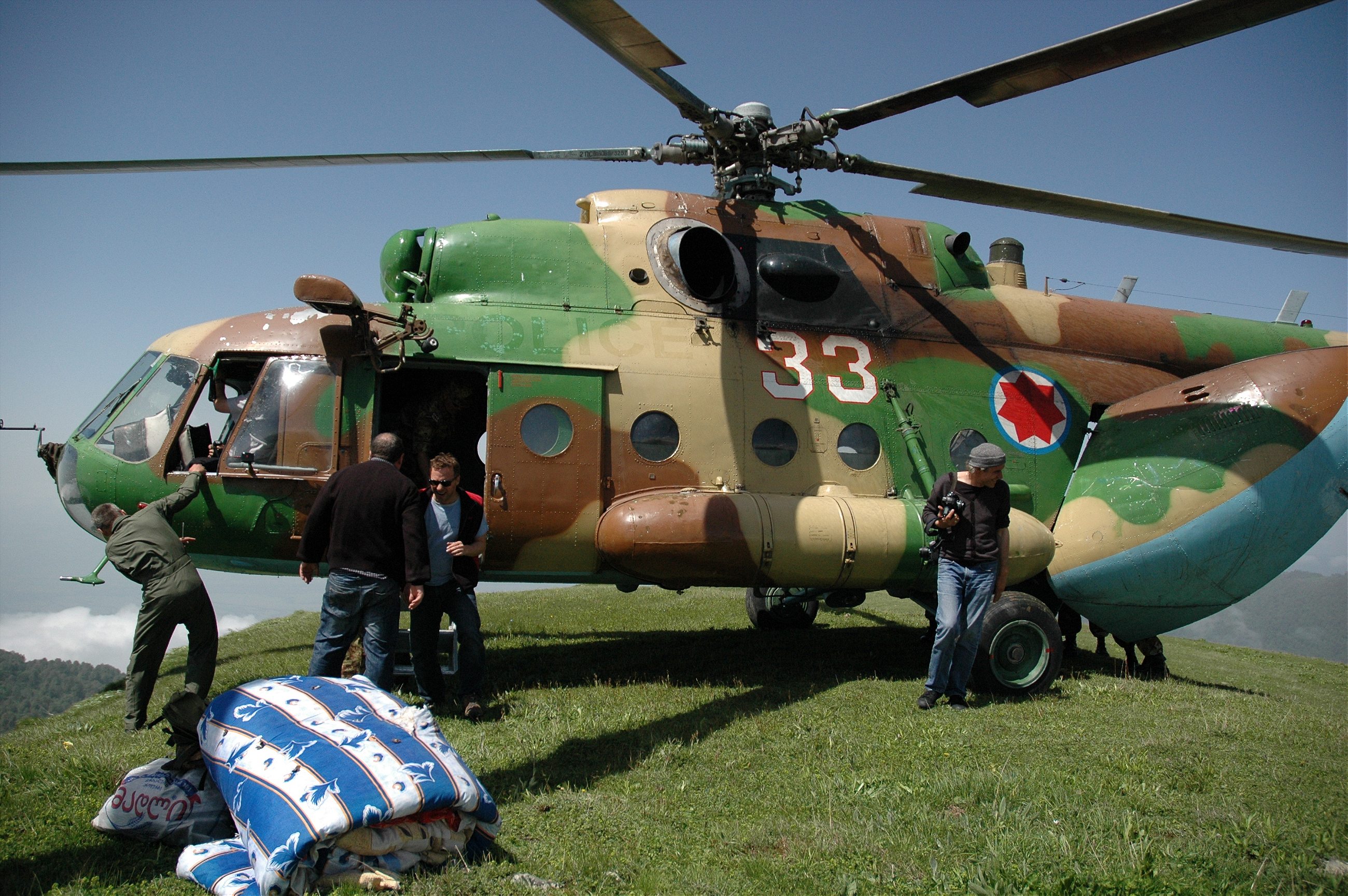
Kozyrev: My first experience in a conflict zone was actually earlier in ’90 and ’91. It was Afghanistan.
Thornburgh: You were in Afghanistan back then?
Kozyrev: I was in Afghanistan. First, I went to Tajikistan. There was a civil war. There were a lot of refugees leaving for Afghanistan. I made a lot of mistakes. I just tried to get to the front line by bus that was full of mujahedin. People realized that me and my friend are Russians. So we actually were captured. We spent three days in prison and then got lucky because one of the guys understood that we were not soldiers and we were let go. It’s still a fresh memory about occupation.
Thornburgh: Yeah, yeah. Of course.
Kozyrev: So, altogether, it was an incredible experience. But for my friend, it was a significant experience that changed his mind and made him want to do something different. Like, “Yuri, it’s enough.” But it was not enough for me. I think I finally understood how to cover conflicts properly in 2001 when the war in Afghanistan happened. I got support from, from big publications. It’s very important when you have people who support you.
Thornburgh: People who are paying attention.
Kozyrev: Yeah. I was working with a team of professional journalists, and I learned a lot.
Thornburgh: And then you went back to Afghanistan in 2001.
Kozyrev: Ten years later and I was on the same route. I got in trouble on the second day. I thought I was familiar with the environment and culture, but I got in trouble. My cameras were taken again. I was driving around the valley with and my fixer and I saw a beautiful scene. There was a group of mostly women. I asked a guy on the road what is happening there and he said he didn’t know, so we decided to drive there just to take pictures. But I didn’t manage to take any pictures because the men from this group start shooting at us. It turned out to be a wedding ceremony, and they didn’t expect strangers to show up. So they were angry with the driver and they took all my cameras.
We left. The driver had been beaten, but he was okay. We came back to the town, and found a local commander and explained what happened. And he said, “It’s fine. You’ll find your cameras.” And I found my Leica next day or the day after at the drugstore. I bought it. It was the cheapest Leica in my life. I bought my Leica back for $100.
Thornburgh: Jim Nachtwey could have shown up five minutes before and bought it.
Kozyrev: (laughs) Yeah.
Thornburgh: And you were with major media by then? Western media?
Kozyrev: Yeah. It was LA Times. Every big publication had a bureau in Moscow.
Thornburgh: Yeah, yeah. Big bureaus, too.
Kozyrev: Yeah. There were four writers or correspondents for LA Times in Moscow.
Thornburgh: Incredible.
Kozyrev: Four or five journalists worked full time. And even a picture editor was assigned to work full time. I was assigned to be in Moscow, which was incredible.
Thornburgh: Those things are related, right? If you have enough people, you’ll find enough stories and you’re not just telling the same kind of story which is…
Kozyrev: Which is annoying now.
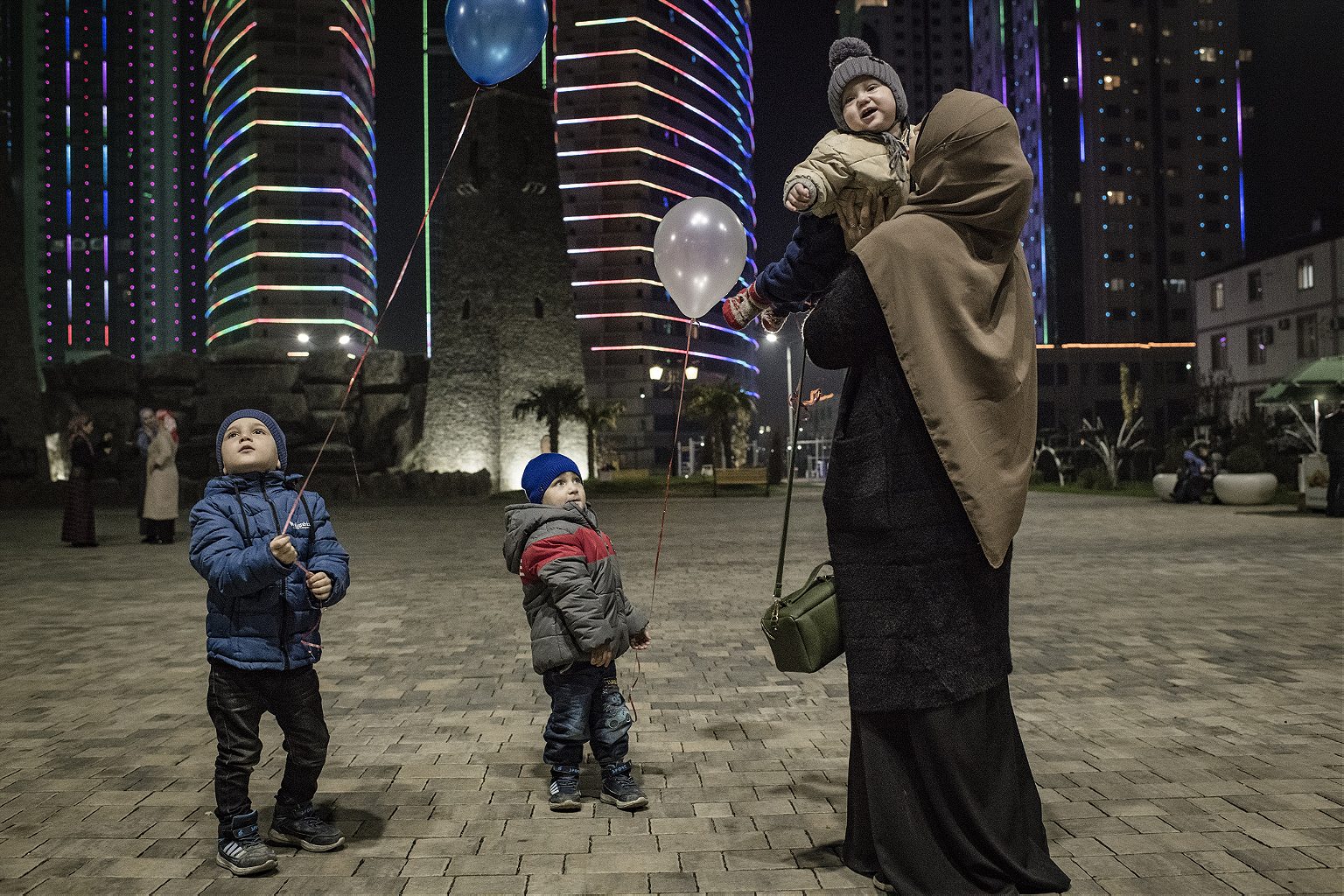
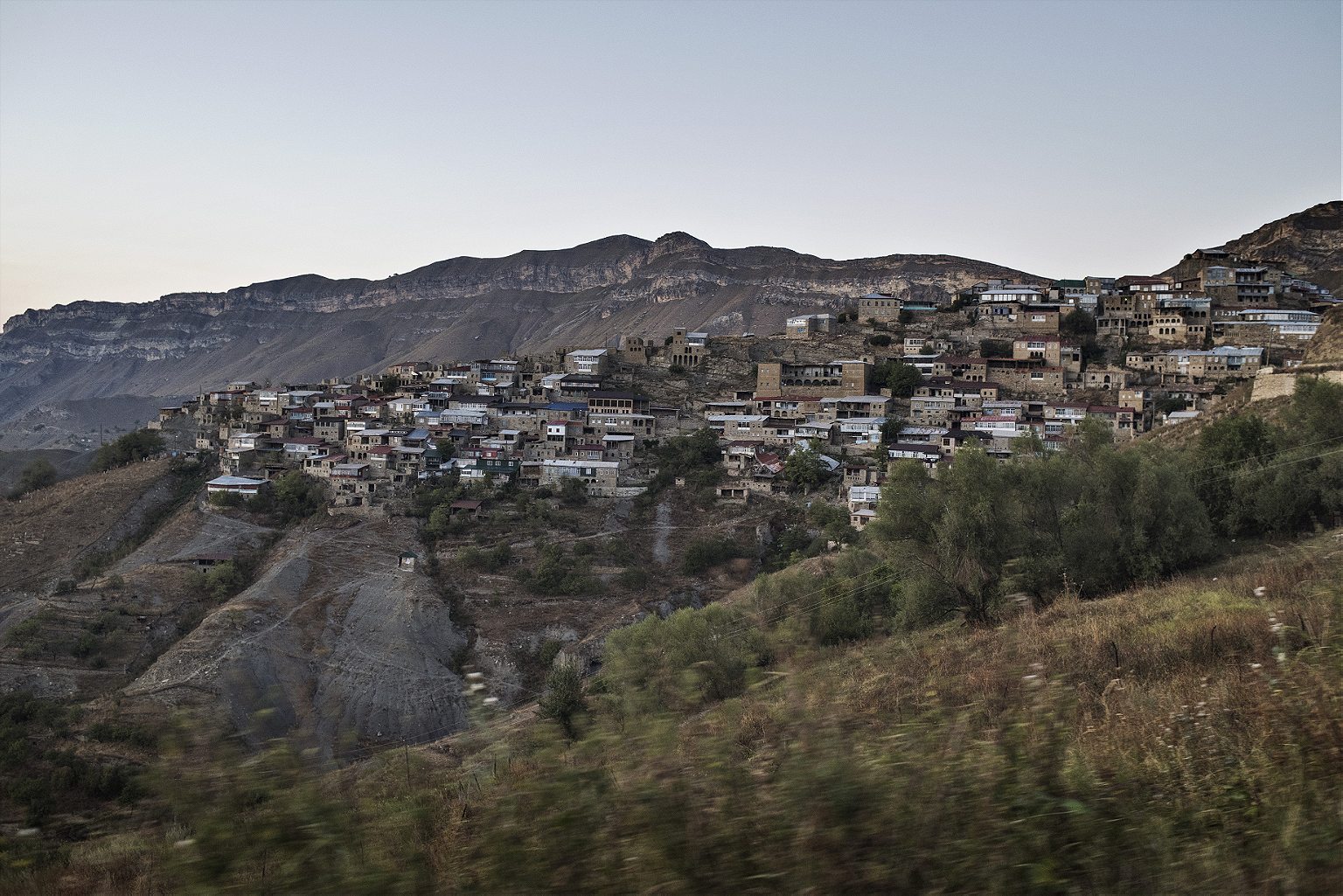
Thornburgh: Which is what’s happening now. We have one Russia story and like zero Russia correspondents.
I don’t think I’ve had a chance to really talk to you about why but you wanted to stop doing conflict photography.
Kozyrev: It was not easy decision. It took time for me. For a couple of years I reconsidered my decision. I really want to do more in my own country. Photojournalists became very important, and I don’t like this. It’s not about us doing something, you know. It’s about the story.
We lost people. We lost friends. Some were kidnapped. Some were slaughtered. It’s very bad and it’s an experience, but I don’t want to be on a stage to talk about it. It was more important to have stories published, so the readers can understand what’s going on. But that was a significant change in our industry. Another change was that publications stopped supporting us. They couldn’t support us to do our job properly.
Thornburgh: They would ask you to go somewhere for only three days…
Kozyrev: It didn’t work for me. Another thing is that in 2002, I couldn’t find any local journalists and photographers in Iraq, but by 2010 there were 100 amazing photographers who knew the culture, language, and what was happening there. So they could do it better than us. The same thing happened in Afghanistan. They started out helping us as drivers and security guys. Then, there was some kind of passion to do something more. So they picked up cameras and we helped them. I’m proud of that.
Thornburgh: There’s also the feeling that people aren’t really responding to the stories the way that they used to. So, if Kira Pollack, the old director of photography at TIME and is now at Vanity Fair, if she calls you tomorrow and says, “Yuri name your latest conflict and we’ll give you the budgets like it used to be and you can spend some time on the story,” are you tempted?
Kozyrev: Good question. It’s a really good question. Kira should try.
It’s still possible. You know, Iraq, is not over for me. It’s in my blood. I spent almost eight years there. I need to go back at some point. At least to try to see people who I met there.
Thornburgh: And maybe continue to support the local journalists.
Kozyrev: Absolutely. Absolutely. I need to understand the conflict or I need to do it on a personal level. That’s important.
Thornburgh: You also wanted to start doing other things.
Kozyrev: Absolutely. I’m still thinking about photography. I’m still curious to go to different places and different kind of stories, but I’m looking for other kinds of stories. The Arctic is one of the places I’m starting to focus on in my work. It’s actually a new frontline.
Thornburgh: Yeah, right. It’s the next conflict. It’s a cold war, should we say that?
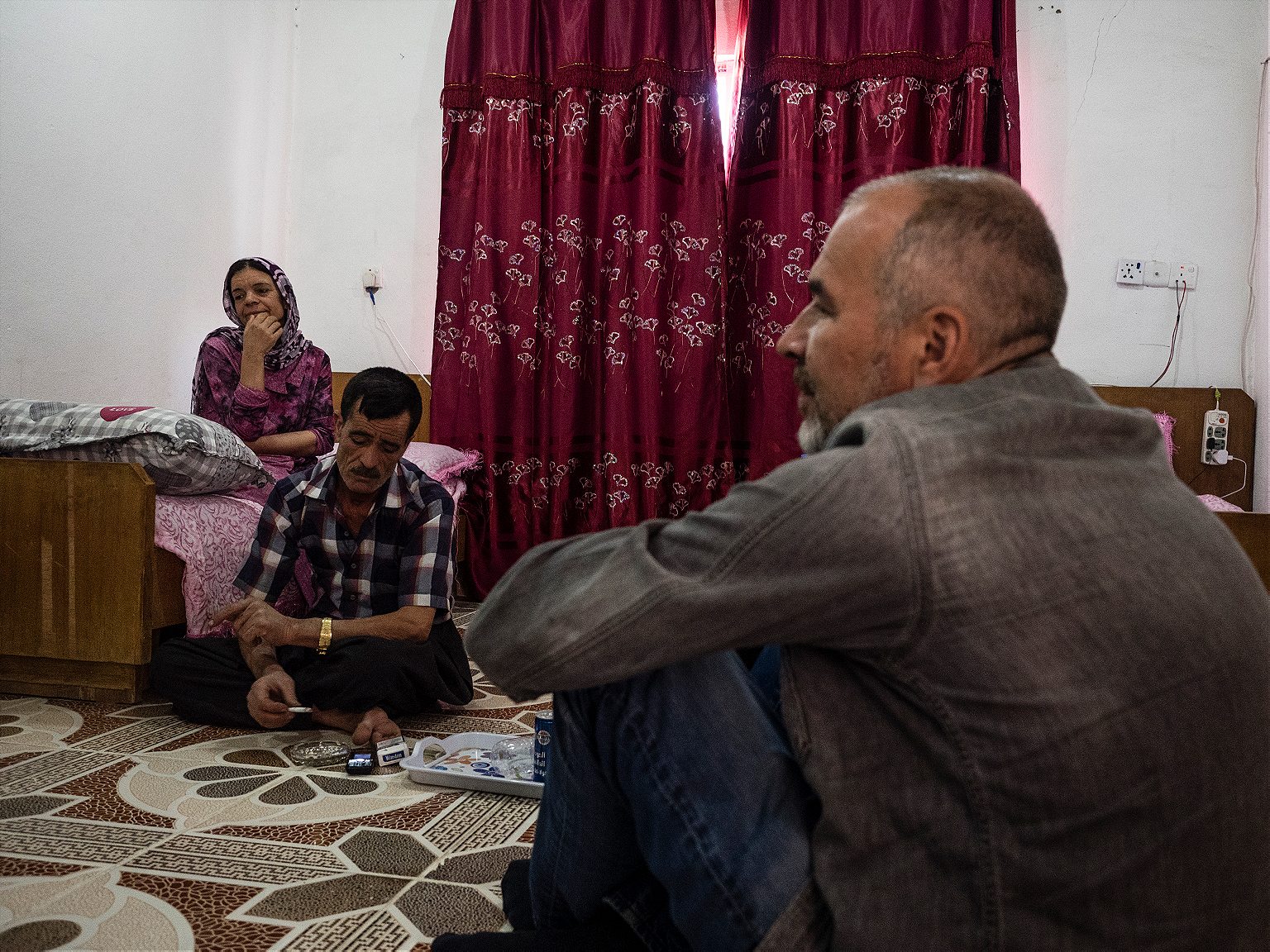
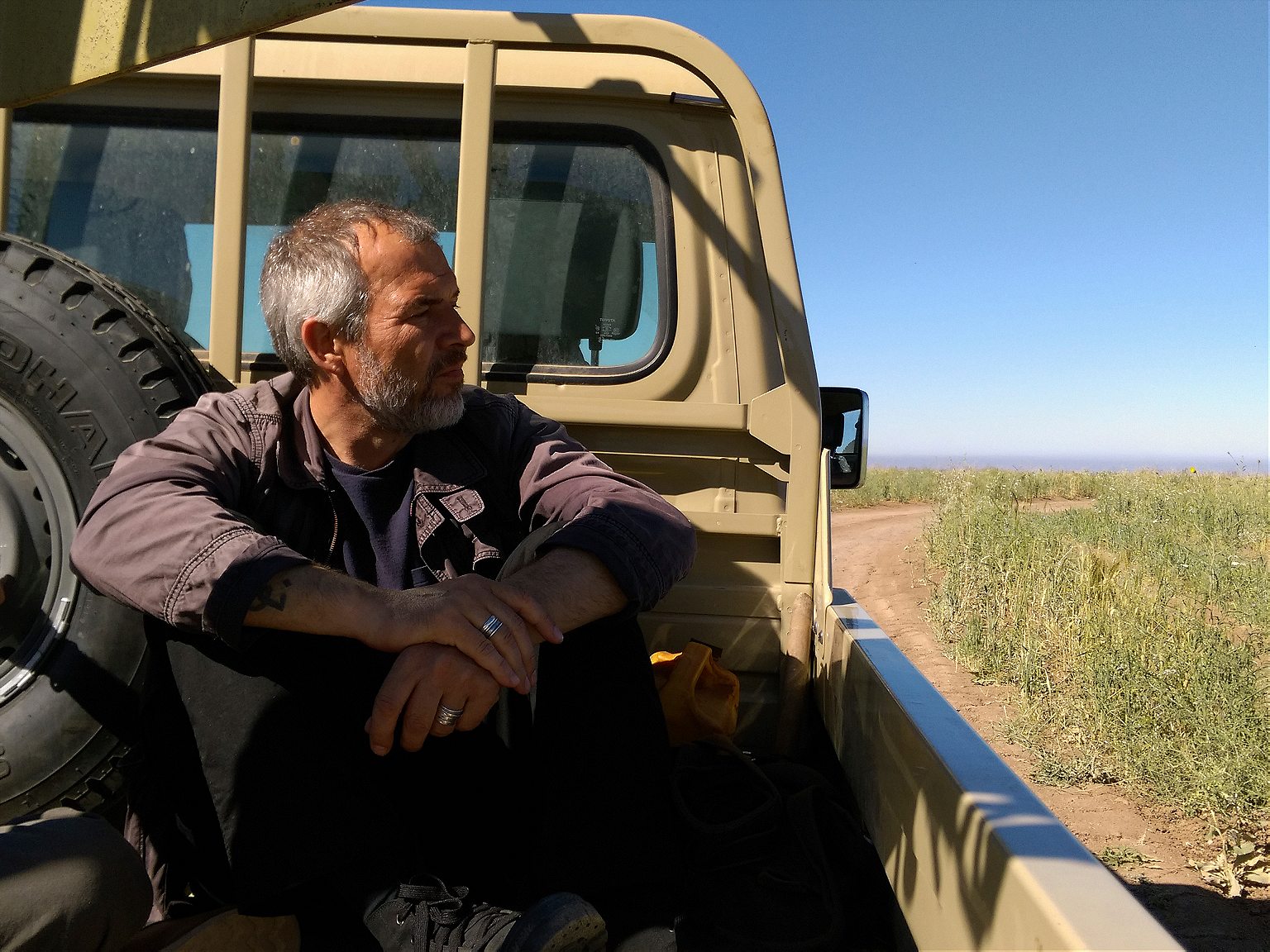
Kozyrev: It’s really cold. It’s a really cold war.
Thornburgh: So you’re going into the Arctic. You’re working with Kadir van Lohuizen, who is one of your stable mates at NOOR. What is that story? What are you guys doing?
Kozyrev: Kadir and I have been talking about it for several years. Climate change is one of the interesting stories there, but there also stories to be told about gas, indigenous people… I hope I get to go on an icebreaker and to travel the north route. Because of climate change, it’s much easier now to travel through the north route. That’s my hook for the story.
Thornburgh: And Kadir is coming from the West.
Kozyrev: Yes. Since he’ll be traveling from the other side, we’ll be able to talk about the changes happening to the Arctic from different sides.
Thornburgh: So, you and Kadir will meet somewhere?
Kozyrev: Probably.
Thornburgh: Somewhere in the far north.
Kozyrev: Maybe North Pole?
[Editor’s note: you can see, in the Washington Post, work from the project Arctic: New Frontier, which was supported by the Carmignac Photojournalism Award]
Thornburgh: Yeah. Meanwhile, just on a personal level, you’re enjoying being back in Moscow. You said you went on a long bike ride today with, with your dog.
Kozyrev: Yeah.
Thornburgh: Coco Chanel. Beautiful day. It’s May.
Kozyrev: It’s the best time. I always try to be back to Moscow and stay with my family in May.
Thornburgh: Yeah.
Kozyrev: It’s pretty rare, but now I can schedule my life, you know. I can decide when it’s time to be on the road. It’s a bit different from the life that I used to have.
Thornburgh: It’s been amazing talking to you and I’m very excited about this next thing. I’m so happy that you came on the show.
Kozyrev: Thank you. Thank you very much.
You can listen to the full episode, for free, on Apple Podcasts, Stitcher, Spotify, or wherever you get your podcasts.